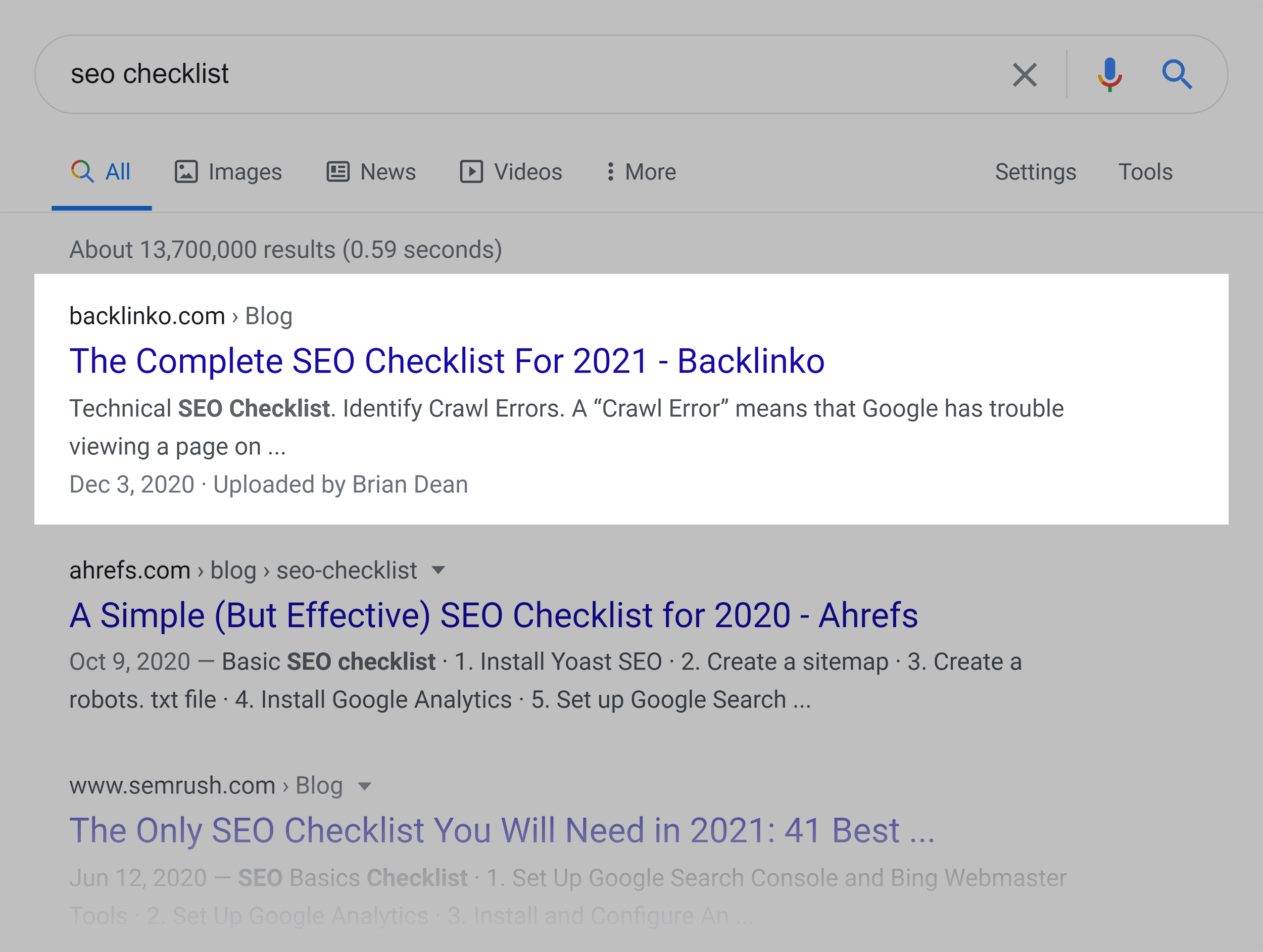 |
| WordPress SEO & Keyword Research: Top Ranking Tips |
WordPress SEO involves optimizing your site to improve its visibility in Google search results. Effective keyword research is crucial for ranking and drawing organic traffic.
SEO in the context of WordPress is an essential aspect for any website owner aiming to increase their online presence. By understanding and applying the principles of SEO, you can substantially enhance the likelihood of your WordPress site ranking highly in Google search results.
Engaging in thorough keyword research allows you to pinpoint exactly what your target audience is searching for, thereby creating content that aligns with their interests and queries. Ranking well in Google not only boosts your site's visibility but also drives more targeted traffic, which can lead to higher conversion rates. As search engine algorithms continually evolve, staying updated on SEO best practices is imperative for maintaining and improving your website's ranking over time. Ensuring your content is well-structured, contains relevant keywords, and provides value to readers are key factors for success in the competitive digital landscape.
Understanding Wordpress Seo
If you're looking to boost your website's visibility and attract more visitors, understanding WordPress SEO is essential. SEO, or Search Engine Optimization, is the practice of enhancing your website to increase its ranking in search engine results, and WordPress offers a rich platform with numerous SEO-friendly features. In this guide, we'll delve into what WordPress SEO is, why it's crucial for your website's success, and the benefits of optimizing your WordPress site for better search engine rankings.
What Is Wordpress Seo?
WordPress SEO involves optimizing WordPress websites to perform better in search results. It combines structural elements inherent to the WordPress platform, such as permalinks, categories, and tags, with content-specific strategies like keyword optimization, meta descriptions, and link building. A well-optimized WordPress site makes it easier for search engines to crawl, index, and understand your content, which is a stepping stone to achieving higher rankings.
Why Is Wordpress Seo Important?
- Higher Visibility: SEO-optimized WordPress sites appear higher in search results, directly translating to increased visibility and more organic traffic.
- Quality Traffic: Targeted SEO strategies attract visitors who are genuinely interested in what your site has to offer.
- User Experience: SEO involves improving the user experience, which can lead to higher engagement and conversion rates.
- Competitive Edge: Outranking competitors in search engine results can give you a significant advantage in your market.
The Benefits Of Optimizing Wordpress Seo
| Benefit | Description |
|---|---|
| Enhanced Performance | Optimization leads to faster loading times and a better overall site performance. |
| Improved Rankings | Higher rankings on Google and other search engines improve brand credibility and authority. |
| Better Engagement | Clean, well-organized WordPress SEO promotes user engagement and increases time on site. |
| Increased Conversions | A well-optimized website can lead to higher conversion rates, whether that's product sales, sign-ups, or other actions. |
Keyword Research For Wordpress Seo
Unlocking the full potential of your WordPress website starts with the cornerstone of SEO: keyword research. This vital process guides a focus on terms your audience actively seeks, ensuring your content resonates and ranks effectively in Google searches. Mastering keyword research means understanding user intent, leveraging high-volume search terms, and capitalizing on the nuanced power of long-tail keywords—all geared towards elevating your WordPress site's visibility.
Introduction To Keyword Research
At the heart of a successful SEO strategy is keyword research—an indispensable step in aligning your content with your audience's inquiries. Whether you're crafting blog posts, optimizing product pages, or refining your website's meta descriptions, keyword research informs your content decisions, offering a blueprint for attracting targeted traffic. It's not just about popularity; relevance and specificity play pivotal roles in connecting with your audience and boosting your site's ranking on Google.
Tools For Keyword Research
Equipping yourself with the right tools is critical for efficient and effective keyword research. A myriad of options exist, ranging from free utilities to premium platforms, each bringing unique strengths to the table:
- Google Keyword Planner: Directly integrated with Google Ads, this tool provides insights into search volumes and competition levels.
- Ahrefs: A robust suite that offers keyword suggestions, search volume data, and SERP analysis.
- SEMrush: Provides comprehensive keyword analytics, including variations and phrase matches.
- Ubersuggest: Quickly generates keyword ideas based on real-world queries.
- AnswerThePublic: Visualizes search questions and prompts for a more user-focused approach.
Finding High-volume Keywords
Targeting high-volume keywords can substantially increase your site's exposure, but competition for these terms can be tough. Use keyword research tools to decode search behaviors and identify popular keywords within your niche that have a balanced ratio of search volume to competition. Integrating these into your content with a strategic approach will lay the groundwork for enhanced search engine performance.
Long-tail Keywords For Wordpress Seo
Long-tail keywords, typically three words or more, are the secret weapon for WordPress SEO. They are less competitive, cater to specific queries, and align closely with user intent. By targeting long-tail keywords, you can attract highly qualified traffic, encourage longer site engagement, and ultimately, enjoy better conversion rates. Leverage the specificity of long-tail keywords to create focused, informative content that addresses the exact needs of your visitors.
On-page Wordpress Seo
On-Page WordPress SEO refers to the strategic optimization of website content and HTML source code to improve its visibility and ranking on search engine results pages (SERPs). The essence of on-page SEO lies in various elements that, when fine-tuned, can give your WordPress site a significant edge in the digital arena. Let's dive into key strategies that can catalyze your on-page WordPress SEO success.
Optimizing Meta Tags And Descriptions
Meta tags and descriptions play a critical role in communicating a page's content to search engines. Meta titles should be compelling and include primary keywords. Each page needs a unique meta description that acts as an advert for the content, encapsulating relevant keywords while enticing readers to click through from search results.
Keep meta descriptions under 160 characters to ensure they display fully on SERPs.
Using Seo-friendly Urls
URLs are not just web addresses; they're opportunities for optimization. Clean, concise URLs with a clear hierarchy improve user experience and make it easier for search engines to understand a page's topic. Include targeted keywords where relevant to boost relevance.
https://example.com/wordpress-seo-guide
Creating High-quality, Keyword-rich Content
Content is king in the realm of SEO. Engaging, original content that naturally integrates targeted keywords satisfies user intent and signals relevancy to search engines. Consider using various types of content such as blog posts, infographics, and videos to provide value and keep the audience engaged.
- Research and use appropriate keywords.
- Maintain a natural flow and avoid keyword stuffing.
- Regularly update your site with fresh content.
Optimizing Images And Multimedia
Images and multimedia can significantly enhance user experience but can also impact site speed and SEO if not optimized. Use descriptive file names and ALT tags with keywords to help search engines interpret the visuals. Compress media files to boost load times without sacrificing quality.

Internal Linking Strategies
Internal linking is a powerhouse technique for on-page SEO. It enables users and search engines to navigate a website efficiently. Use anchor text that indicates the linked page's content, distributes page authority throughout the site, and helps reduce bounce rates by encouraging further exploration.
- Link to relevant and useful content.
- Avoid excessive linking; keep it natural and useful.
- Use a consistent linking structure to build a strong internal network.

Credit: backlinko.com
Off-page Wordpress Seo
While on-page optimization plays a crucial role in the success of your WordPress site, off-page SEO tactics can significantly amplify your online visibility. This section of our blog zeroes in on powerful off-page strategies that can drive your WordPress site to the pinnacle of search engine results. Off-Page SEO covers all the activities performed outside your website to improve its ranking on Google. It's important to understand that search engines perceive these external factors as votes of confidence that indicate the relevance and authority of your content.
Building High-quality Backlinks
The backbone of off-page SEO is building high-quality backlinks. These are links from other websites that point back to your site, serving as endorsements of your content’s quality. Not all backlinks are created equal; links from authoritative and relevant sites carry more weight. To cultivate a robust backlink profile, consider the following strategies:
- Publishing ubiquitous, compelling content that others naturally want to reference.
- Creating infographics and original research, making it shareable across various platforms.
- Participating in forums and online communities, providing helpful insights and including a website link when appropriate.
- Writing testimonials for services you use, as they may link back to your site.
Guest Blogging And Influencer Outreach
Guest blogging and influencer outreach are about forging relationships with industry influencers and contributing content to other blogs within your niche. When you provide valuable content to other sites, you can:
- Secure a backlink or author bio with a link to your WordPress site.
- Expose your brand to a new audience.
- Build your reputation as an authority in your field.
To start guest blogging, compile a list of possible blogs with a similar audience, ensuring they have good domain authority. Then craft personalized outreach emails to pitch your unique content ideas.
Social Media Engagement For Wordpress Seo
The modern SEO landscape considers social media engagement an influential factor. Strong social signals can enhance your WordPress site’s exposure and lead to more opportunities to earn backlinks. Implement these tactics to bolster your site's SEO through social media:
- Sharing your content promptly across your social media channels.
- Engaging with your followers through comments and discussions.
- Using hashtags to increase your content's discoverability.
- Encouraging user-generated content that links back to your website.
Note: Focus on building genuine relationships rather than just broadcasting your message. Active engagement can transform your social media accounts into traffic goldmines for your WordPress site.
Wordpress Seo Plugins
Elevate your WordPress site's visibility with top-notch SEO plugins designed to enhance keyword research and boost rankings on Google. Streamline the optimization process and achieve higher search engine visibility, securing your place at the top of search results.
Introduction To Wordpress Seo Plugins
Optimizing your WordPress site for better search engine rankings requires a strategic approach, and WordPress SEO plugins are essential tools in this quest. From fine-tuning meta tags to generating sitemaps, these plugins serve as your digital assistants—streamlining the SEO process and helping your content shine in Google's search results.
Yoast Seo: A Comprehensive Seo Plugin
Yoast SEO stands tall among the plethora of SEO plugins. With its robust suite of features, Yoast SEO simplifies on-page optimization, content analysis, and technical SEO tasks. What sets Yoast apart is its user-friendly interface and real-time content analysis tool, which provides actionable insights to enhance your posts' readability and SEO.
- SEO Analysis: Provides SEO optimization tips to improve your content.
- Readability: Checks the readability of your copy and suggests improvements.
- Breadcrumbs: Helps you set up easy navigation for both users and search engines.
- XML Sitemaps: Automatically generates XML sitemaps, making it easier for Google to understand your site structure.
Other Popular Wordpress Seo Plugins
While Yoast SEO is a favorite, several other WordPress SEO plugins are also highly effective in boosting your website's visibility. Each plugin offers unique features to enhance different aspects of your SEO strategy.
| Plugin Name | Key Features |
|---|---|
| All in One SEO Pack | Generates meta tags, supports Google Analytics, and provides SEO integration for e-commerce sites. |
| SEMRush | Offers keyword research tools, comprehensive SEO audits, and competitor analysis. |
| Rank Math | Comes with a built-in keyword ranking tool, Google Schema markup integration, and smart redirection manager. |
Besides these plugins, others like The SEO Framework and SEOPress also deliver powerful optimization services. From improving site speed with caching plugins like W3 Total Cache to enhancing image SEO with Smush, the WordPress plugin repository offers a diverse set of tools tailored for every SEO requirement.
In essence, the right mix of WordPress SEO plugins can elevate your website's ranking potential. They work seamlessly behind the scenes, allowing your content to claim its rightful place atop search engine results pages. Choose wisely, and your WordPress site can ascend the SEO ladder with finesse and agility.

Credit: www.elegantthemes.com
Measuring And Tracking Wordpress Seo Performance
Measuring and Tracking WordPress SEO Performance remains a cornerstone activity for any successful website. Regularly assessing how well your SEO strategies are performing helps you make informed decisions about future tactics. You can discover which keywords draw traffic, which pages resonate with visitors, and where there might be room for improvement. The following sections will guide you through the necessary steps to evaluate your WordPress site’s SEO health accurately.
Setting Up Google Analytics For Wordpress
Google Analytics offers profound insights into your website’s performance. If you have yet to integrate this tool with your WordPress site, you're missing out on valuable data. Begin by signing up for a Google Analytics account. Next, download and activate a trusted plugin such as MonsterInsights or insert the tracking code directly into your theme. Here's a simple guide:
- Install the Google Analytics plugin or access your theme's header.php file.
- Locate the Analytics tracking ID in your Google Analytics account.
- Enter the tracking code using the plugin or by pasting it into header.php before the closing tag.
- Verify the setup in your Google Analytics dashboard to ensure data collection has begun.
Tracking Keyword Rankings
Acknowledging which keywords are boosting your search ranking is fundamental to SEO success. Utilize tools like SEMrush, Ahrefs, or Google Rank Checker to track your keyword rankings. Regular tracking allows you to:
- Identify winning keywords contributing to traffic and conversions.
- Detect ranking drops quickly and address issues proactively.
- Spot opportunities for new keyword targeting.
Keeping a close eye on your keyword rankings assists you in fine-tuning your SEO tactics and content strategy to align with what your audience is searching for.
Monitoring Website Traffic And User Behavior
Analyzing website traffic patterns and user behavior gives you a detailed understanding of your audience. Examine these metrics with Google Analytics to make data-driven improvements to your site:
| Metric | Why It Matters |
|---|---|
| Pageviews | Indicates the popularity of individual pages. |
| Bounce Rate | Shows the percentage of visitors who leave after viewing only one page. |
| Average Session Duration | Offers insights into how long users stay on your site. |
| Traffic Sources | Reveals the origin of your site’s traffic and the effectiveness of various marketing efforts. |
| Conversion Rate | Measures the success of your calls-to-action and user engagements. |
By synthesizing this data, you can optimize your content, enhance user experience, and ultimately, achieve better SEO rankings on Google. Remember to review these metrics consistently over time to measure growth and pinpoint trends.

Credit: yoast.com
Frequently Asked Questions Of Wordpress Seo, Keyword Research, Ranking, Ranking In Google
Does Google Rank Wordpress Sites Higher?
Google does not inherently rank WordPress sites higher. The platform itself is SEO-friendly, but ranking depends on content quality, optimization, and adherence to SEO best practices.
How Do I Rank My Wordpress Site On Google?
To rank your WordPress site on Google, ensure your content is high-quality and keyword-optimized. Use SEO plugins like Yoast to improve on-page SEO. Build reputable backlinks. Enhance site speed and mobile responsiveness. Regularly update the site with fresh, relevant content.
How Do I Rank My Keywords On Google?
To rank keywords on Google, conduct thorough keyword research. Optimize your website with on-page SEO techniques. Create high-quality, relevant content regularly. Build authoritative backlinks. Monitor performance and adjust strategies with analytics tools.
How Do I Get High Seo Rankings On Google?
To achieve high SEO rankings on Google, focus on creating quality content with relevant keywords, ensure your website is mobile-friendly with fast loading times, acquire credible backlinks, use descriptive, keyword-rich meta tags, and regularly update your site with fresh content.
Conclusion
Mastering WordPress SEO is a game-changer for any website. By conducting thorough keyword research, you elevate content relevance. Implementing these strategies ensures better Google rankings. Let's harness SEO power for your WordPress success. Start optimizing today and watch your digital presence thrive.


